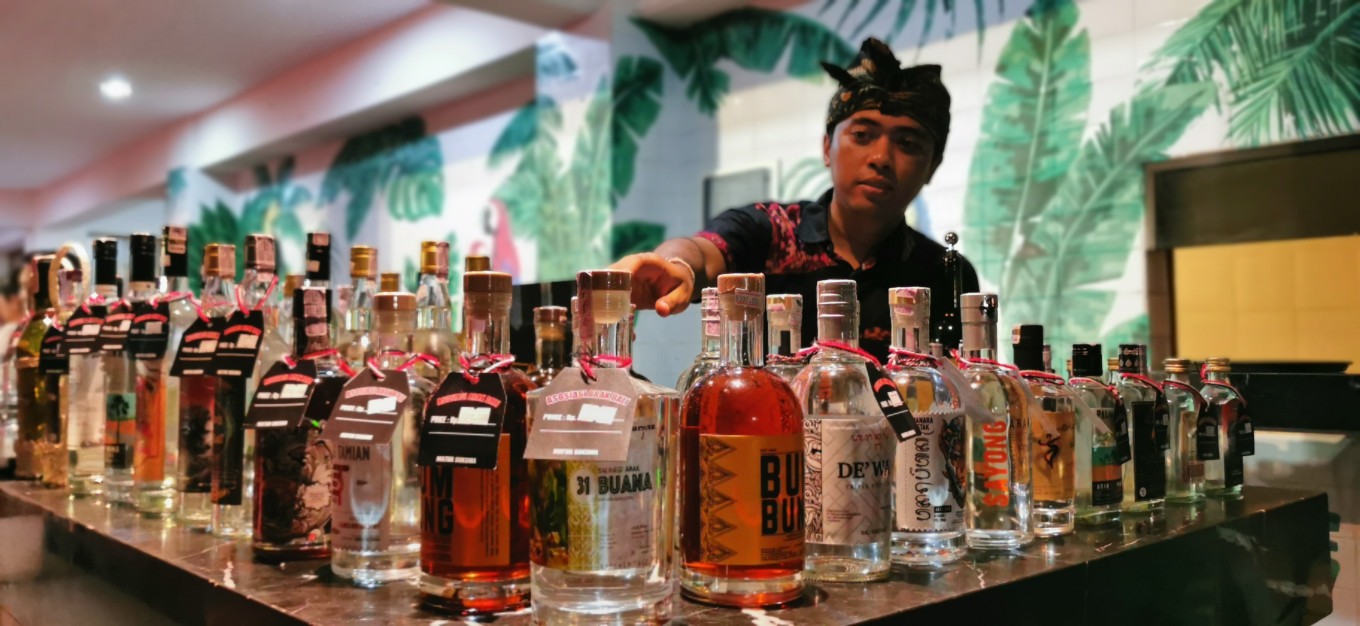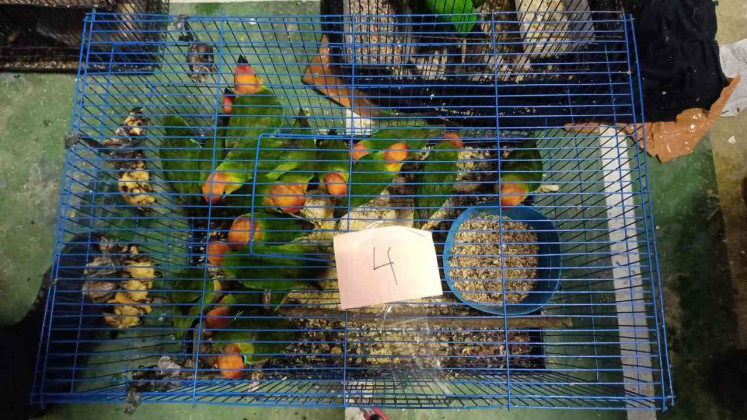Popular Reads
Top Results
Can't find what you're looking for?
View all search resultsPopular Reads
Top Results
Can't find what you're looking for?
View all search results‘Five shots a day’? Bali celebrates first Arak Day
“I can have five shots of the mix every day, and I never get drunk. It’s good for our bodies,” Bali Governor I Wayan Koster said.
Change text size
Gift Premium Articles
to Anyone
B
ali celebrated Arak Bali Day for the first time on Sunday with an event in Nusa Dua promoting the traditional liquor distilled from the sap or fruit of palm trees.
“Through this Arak Bali Day celebration, I urge Bali people to utilize arak for proper reasons such as for traditional rituals, health and culinary applications. It is firmly banned to drink arak to get drunk and ruin your health,” said Bali Governor I Wayan Koster in December, when he announced that Arak Bali Day would be held.
The event featured arak-related celebrations involving Bali officials, hoteliers, entrepreneurs, farmers and club owners across Bali.
Made with nira (flower extract) of coconut or sugar palm, arak is fermented and distilled by craftsmen in many villages across the island.
The distinctive liquor has been a part of Balinese life for hundreds of years. It is present at religious ceremonies, imbibed at celebrations and sneaked into public entertainment events, which these days include beach clubs and concerts.
Incidents of public intoxication, alcohol poisoning and even death due to improperly prepared arak have made it somewhat infamous, especially among tourists.
“Arak Bali is a traditional Balinese distilled liquor that is our cultural inheritance and needs to be protected, maintained, empowered, marketed and utilized to support cultural activities and empower the economy of the community,” Koster said.
Koster emphasized that arak was safe as long as it was consumed properly. The governor claimed he himself consumed arak every day, noting that a mix of arak and black coffee was his favorite daily supplement.
“I can have five shots of the mix every day, and I never get drunk. It’s good for our bodies,” he said.
In 2014, the central government placed alcoholic drinks such as arak on its “negative investment list”, essentially banning foreign investment in the nation’s already flagging liquor industry.
While some welcomed the decree as an attempt to limit alcohol consumption’s ill effects, in regions with long cultural histories of alcohol consumption, resistance remains.
In 2020, Bali passed a local regulation providing a legal framework for the distillation and distribution of arak.
The regulation requires independent arak makers and farmers to market their products through a cooperative that partners with selected factories to mass produce, bottle and package the liquor.
Last year, the Education, Culture, Research and Technology Ministry recognized the liquor as a form of intangible cultural inheritance.
I Ketut Sumerta, a farmer from Tri Eka Bhuana village in Karangasem, Bali, welcomed the provincial administration's efforts to develop the arak industry.
“Previously, I sold tuak [the palm wine from which arak is distilled] for only Rp 4,000 [27 US cents] to Rp 5,000 per liter. Now, I can sell it for around Rp 6,000 per liter,” Sumerta said.
He said the new policy had made him feel more secure and accepted.
“We used to be monitored by the police, but not anymore. I am very thankful for that,” he said. (dre)










